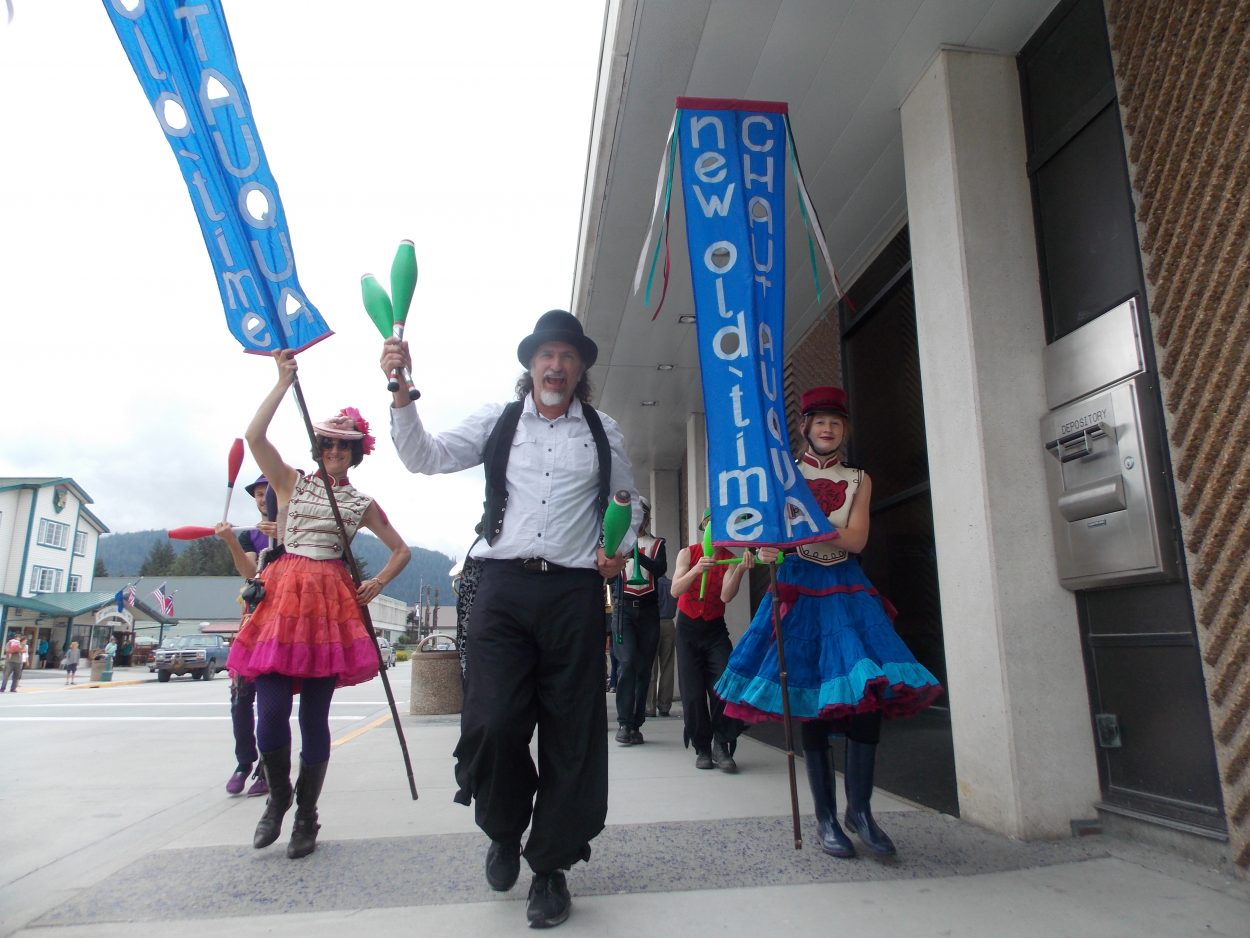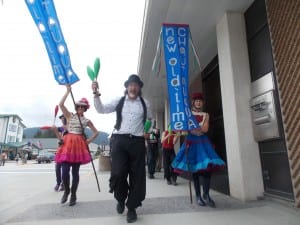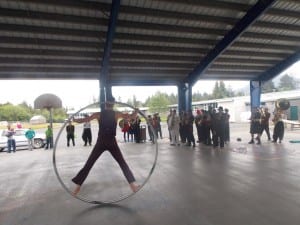In their heyday in the 1920s over 40 million Americans attended Chautauquas. They were fixed or travelling bands of educators and entertainers whose intention was the promotion self-education and engagement with local communities.
On Sunday a new kind of Chautauqua arrived in Petersburg.
If you went down to Sandy Beach park on Sunday afternoon you might have been in for a big surprise.
Dozens of tents lie camouflaged in the canopy of trees. Dotted on the floor in between are juggling clubs, brass instruments and costumes of a kind of Victorian hue.
This is the New Old Time Chautauqua. As I enter, the camp cryer, Chris Leeming, greets me.
“Hi there, I’m Chris,” he says. When I tell him I’m from the radio station he murmurs his approval.
But he says he’s not the man I’m looking for. Somewhere around here is Paul Magid. We go looking for Magid with Lemming using his booming voice to try and find him. The camp is so big and sprawling. I’m not confident Paul Magid will ever be found. But at last Chris tracks him down and introduces me.
Magid is the leader of this rag bag group of travelling artists and entertainers. He was one of the founder members of the Chautauqua and was here 23 years ago when the group last came to Petersburg. He’s got a big bushy moustache and kind of looks like a much loved uncle.
He offers to take me on a tour round the camp. He shows me the kitchen where they are prepping coconut cookies for their upcoming community potluck.
There are over 50 of them here and as we walk around, we bump into more of the merry travelers. They’re surprisingly alert considering they’ve had to negotiate the unforgiving departure times of Southeast’s ferry system for the past week.
There are jugglers who toss clubs to each other; the brass band who merrily play Handel and the guy who lights fires with a stick and some rope, demonstrating his talents to Petersburg locals young and old.
Magid says the communities they travel to often find this assault on the senses hard to resist.
“They sometimes can’t help themselves because we have a full marching band,” he tells me. “We like to call our weapon of musical destruction.”
Weapon of Musical destruction or not, just like the Chautauquas of yesteryear they’re here to educate and entertain. And this ideal is one people engage with every day.
“A Ted Talk is a Chautauqua. NPR is a Chautauqua,” he says. “This is a Chautauqua thing you’re doing right now.
Magid’s on a mission and by the number of people who have turned up to the community potluck, he’s having quite a bit of success.
One of those people is Deontea Vickers-Idrisov. She’s a 48 year old woman who’s working in one of the canneries in Petersburg this year.
She came out to Sandy Beach to get away from her bunk house and ran into the Chautauqua. What she didn’t realize is four hours later she’d be able to juggle.
“I’m getting better I’m getting better, I’m going to practice every day so then I’ll be really good,” she exclaims.
She says working in the cannery is hard but coming to see the Chautauqua today has really lifted her spirits.
“They have us working sometimes 18 hours so to get away and juggle and meet people, it’s like a breath of fresh air actually,” she says.
I ask her whether she ever thought she’d be learning to juggle in Alaska.
“No I didn’t. I came to Alaska and learned how to juggle, I can’t even believe it,” she says. “I even had them videotape me doing it because no one’s going to believe it. Deontea Vickers Idrisov, 48 years old, learned how to juggle in Alaska today.
For Paul Magid and his gang, Vickers Idrisov’s joy is reason enough to take those inconvenient Southeast ferries.














